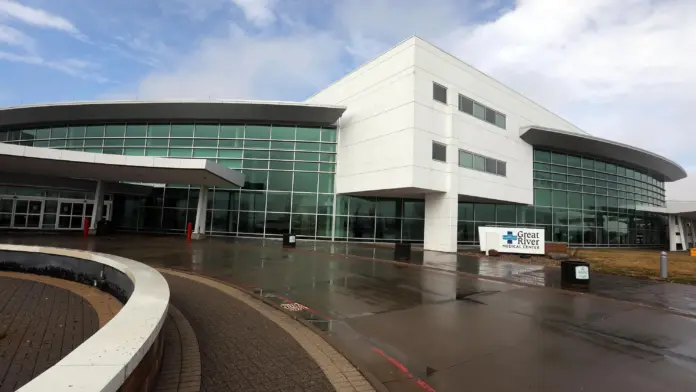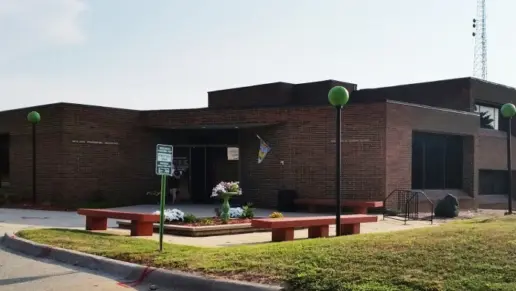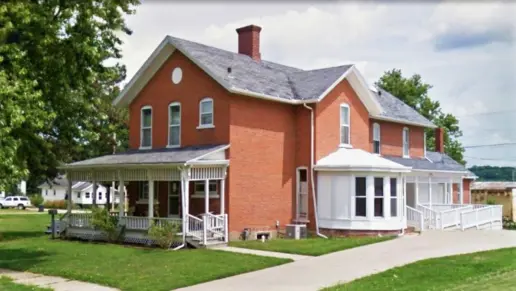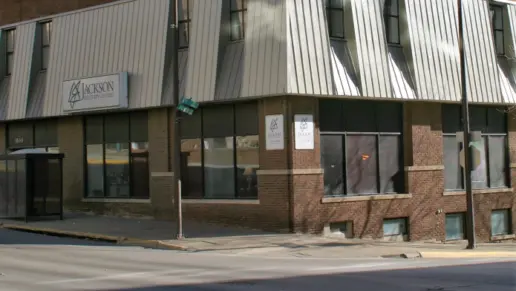When I got put into the psych ward at the Burlington, Iowa hospital, I was initially treated well. But then when they actually put me in, the nurses, absolutely rude. They laughed at patients, they made it seem like we were free entertainment. One of the nurses came up to a ...
About Southeast Iowa Regional Medical Center West Burlington Campus
Great River Medical Center – Behavioral Health offers addiction recovery and mental health services for adults in West Burlington, Iowa. Their services include crisis intervention, patient stabilization, inpatient treatment, outpatient treatment, and aftercare programming.
Specialized treatment at Great River Medical Center – Behavioral Health includes dedicated programming for young adults, seniors, persons with hearing impairments, and persons with co-occurring addiction and mental illness. Treatment is available at the following levels of care:
Inpatient Program
Their inpatient programs allow clients to focus on their recovery in a highly structured and supportive environment. Clients receive around-the-clock clinical supervision, medical and mental health assessments, and personalized care planning. They also engage in intensive, trauma-informed individual, group, and family counseling that draws on proven modalities including CBT and DBT. The program promotes clients’ sustained sobriety and successful community reintegration through robust, recovery-focused life-skills training. Topics include coping, self-care, emotional regulation, disease and medication management, and relapse prevention.
Outpatient and Aftercare Services
Their outpatient and aftercare services ensure a complete continuum of care aligned with clients’ evolving needs. These services may include step down support, 12-Step program facilitation, and referrals for additional medical, mental health, and social service programs.
Payment Options
Great River Medical Center – Behavioral Health accepts private insurance, Medicare, Medicaid, military insurance, and self-pay. Financial aid is available.
Latest Reviews
Rehab Score
Gallery

Location
Other Forms of Payment
Private insurance refers to any kind of healthcare coverage that isn't from the state or federal government. This includes individual and family plans offered by an employer or purchased from the Insurance Marketplace. Every plan will have different requirements and out of pocket costs so be sure to get the full details before you start treatment.
Self-pay involves paying for treatment out of your own pocket. You can use savings or credit, get a personal loan, or receive help from family and friends to fund your treatment. If you don't have insurance or your insurance plan doesn't cover a specific program, self-pay can help ensure you still get the care you need.
Financial aid can take many forms. Centers may have grants or scholarships available to clients who meet eligibility requirements. Programs that receive SAMHSA grants may have financial aid available for those who need treatment as well. Grants and scholarships can help you pai for treatment without having to repay.
Sliding scale payments are based on a client's income and family size. The goal is to make treatment affordable to everyone. By taking these factors into account, addiction recovery care providers help ensure that your treatment does not become a financial burden to you or your family, eliminating one barrier to care.
Medicare is a federal program that provides health insurance for those 65 and older. It also serves people under 65 with chronic and disabling health challenges. To use Medicare for addiction treatment you need to find a program that accepts Medicare and is in network with your plan. Out of pocket costs and preauthorization requirements vary, so always check with your provider.
Medicaid is a state based program that helps lower-income individuals and families pay for healthcare. Medicaid covers addiction treatment so those enrolled can use their coverage to pay for rehab. When a program accepts Medicaid the client often pays very little or nothing out of their own pocket.
Military members, veterans, and eligible dependents have access to specific insurance programs that help them get the care they need. TRICARE and VA insurance can help you access low cost or no cost addiction and mental health treatment. Programs that accept military insurance often have targeted treatment focused on the unique challenges military members, veterans, and their families face.
Addiction Treatments
Levels of Care
Treatments
Mental health rehabs focus on helping individuals recover from mental illnesses like bipolar disorder, clinical depression, anxiety disorders, schizophrenia, and more. Mental health professionals at these facilities are trained to understand and treat mental health issues, both in individual and group settings.
Programs


Clinical Services
Group therapy is any therapeutic work that happens in a group (not one-on-one). There are a number of different group therapy modalities, including support groups, experiential therapy, psycho-education, and more. Group therapy involves treatment as well as processing interaction between group members.
In individual therapy, a patient meets one-on-one with a trained psychologist or counselor. Therapy is a pivotal part of effective substance abuse treatment, as it often covers root causes of addiction, including challenges faced by the patient in their social, family, and work/school life.
During motivational interviewing in Iowa, the client and therapist collaborate to identify any discrepancies in the client's current situation and future goals. By asking open ended questions and using reflective listening skills, the therapist encourages the client to reach their own conclusions and make a commitment to any needed changes in their life.
Trauma therapy focuses on helping you heal from the psychological impact of witnessing or experiencing a traumatic event. Your therapist offers you support and guidance, which ultimately helps reduce your distress and build resilience.
Couples therapy in Iowa involves mediation, education, and psychotherapy. Participants learn about themselves and each other and how to successfully navigate challenges in the relationship. Sessions can include both joint and individual meetings with the therapist.
During family therapy in Iowa, therapists focus on the collective healing of all members of the family unit who were impacted by addiction. Therapists guide families in understanding the effect addiction has and develop healthy communication practices. By working together, families can help support their loved ones recovery.
To achieve long term positive outcomes from treatment, it is important to incorporate life skills training. This equips you with new ways to manage challenges and navigate daily life. These skills encompass relationships, self care, and other day to day tasks.
Nutrition therapy, aka medical nutrition therapy (MNT), is a way of treating physical, emotional, and medical conditions through diet. Specific dietary plans are designed by professional nutritionists or registered dietitians, and patients follow them in order to positively affect their physical and mental health.
Contact Information
1221 South Gear Avenue
West Burlington, IA 52655


